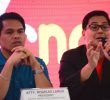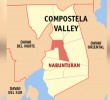The reaction to the pork barrel scandal and the subsequent declaration of PDAF as unconstitutional was swift. Many immediately stood up to condemn it, and, despite eleventh-hour efforts by Noynoy Aquino to soothe the people by “abolishing” the PDAF, the Million People March in August of last year demonstrated that the citizenry will not be quelled. Even still, there were still those who had doubts, especially those who had been beneficiaries of the Congressional pork through scholarships, medical assistance, and the like.
But, of all the questions that arose in the aftermath of the unconstitutionality of the PDAF, this was the simplest to answer. Why? Because this only entailed the simple reminder that the money these Congressmen were doling out actually is not theirs, but the people’s. The names of politicians attached to these packages are, at the very least, misleading, because they are ultimately sourced from public funds filled in by tax payers’ money.
But beyond this reminder is the more relevant question of why this practice in Philippine politics persists. It does so only to ensure the political survival of our officials by playing on the voters’ sentiments and insecurities. No money for hospital bills? Can’t go to school? Jobless? Here’s Congressman so-and-so to the rescue. The result is a population under Congressman so-and-so’s thumb, beholden and ensured to vote for him or his family members for elections to come.
Another common opinion about the pork barrel – and corruption in general – that crops up is one I’ve mentioned in an earlier column, and that is the idea that the only thing we can do is to start small: teaching children good values, focusing on the local community, etc. I’ve never really been able to shake off this sense of unease whenever someone utters this. I’m not saying that we should stop teaching our children well but, shouldn’t we ask, is this the proper response to what is clearly a systemic problem?
I’ve noticed that this outlook often comes from members of the disenfranchised, powerless sectors, and this powerlessness shows. How would you feel if, after struggling for most your life, toeing the line and seeing presidents come and go, you still found yourself in the same place? Can you be blamed for choosing to focus on what you think they can most influence, such as your children, other kin, neighbors, etc.? In a society where every day is a struggle to simply survive, you learn to hunker down and concentrate meager resources where you think you can best maximize them – and maybe this affects the capacity to care about issues outside of one’s immediate circle.
The good that this reflects is that we still believe in the decency of our fellow Filipinos (because if not, then why bother teaching them?). However, even in this some of our very clever politicians still see further opportunity for exploitation. Notice how some politicians project themselves as personally emotionally invested in their constituents, from “GMA Cares” to “Gusto ko happy ka”. Oh, they play it to the hilt with the hugs and the handshakes and the sharing of simple fare (kamayan, of course) with farmers under the shade of mango trees.
It goes without saying that these are carefully crafted undertakings designed to take advantage of our idea of “good faith”. But this is just the tip of the entire backbone of getting people elected into office, that is, through patronage politics very much abetted by the pork barrel system. After all, someone who would deign to eat tuyo with you and shake your wife’s hand and hug your children might not be such a bad person after all, and oh, he gives scholarships and referrals for hospitalization needs, to boot! Then, this good fellow will get elected and reelected so long as he still has the means to keep people beholden to him, and that brings us back to the first point above.
Let me make this clear: is the trust in each other’s capacity for goodness to blame for this? Certainly not. Don’t give me any of that “kung walang paloloko, walang manloloko” platitude, which some take to mean that the masses are so dumb and/or naïve, the will believe anything any one tells them. Remember that the naloloko and the manloloko here are not, and have never been, on equal footing. Can we immediately expect mature analyses from people whose right to be educated has never really been given to them? Can we expect sober decisions from one who is hungry, homeless, and constantly under threat from disasters both natural and human-made?
And I for one would never wish for this very human trait to be removed from any of us; harnessed properly, this may in fact be what instigates the burning desire for change and the resolve one finds in oneself to strive for it. And this is exactly what the People’s Initiative is hoping to tap, to finally abolish the inherently anomalous pork barrel system once and for all.
But the questioning is far from over, and this in fact brings us to the toughest one asked of the abolish pork advocates so far: what are the guarantees? How can we win? The number requirements of the People’s Initiative are intimidating enough by themselves, then we have to break the news that it’s actually a two-step national campaign with a plebiscite following the signature drive. A few have thrown up their hands in despair, immediately deciding that this was a losing fight, so why should we even bother.
This is the toughest so far not because it doesn’t have an answer, but because answering this appeals not to reason or logic or other calculative faculties we rely upon when faced with a win-or-lose situation. A simple analogy (one which my students find endlessly entertaining) is pursuing the love of one’s life. You may not know for sure if this person loves you back, but then you will never know unless you act. First comes the risk – of rejection, embarrassment, a long, arduous courtship – but the rewards are incredible. If we can put our love life in such a perspective, how can we not do the same with our country’s future? Are we really going to just boil it down to winning or losing? That is a disservice to the next generation, who can very well denounce us if we fail to take action when we could have – regardless of the results.
Besides, there is one last thing to think about: if the People’s Initiative is the only viable legal solution left to this chronic problem (and it most certainly is), and we give up on it before even trying it out, are we ready to face the implication that the only other means to achieve genuine change lies not within conventional bounds alone, but calls for more radical – maybe even extralegal – courses of action? If that is the case, then all these recourses must be made available to the people, including revolution.










